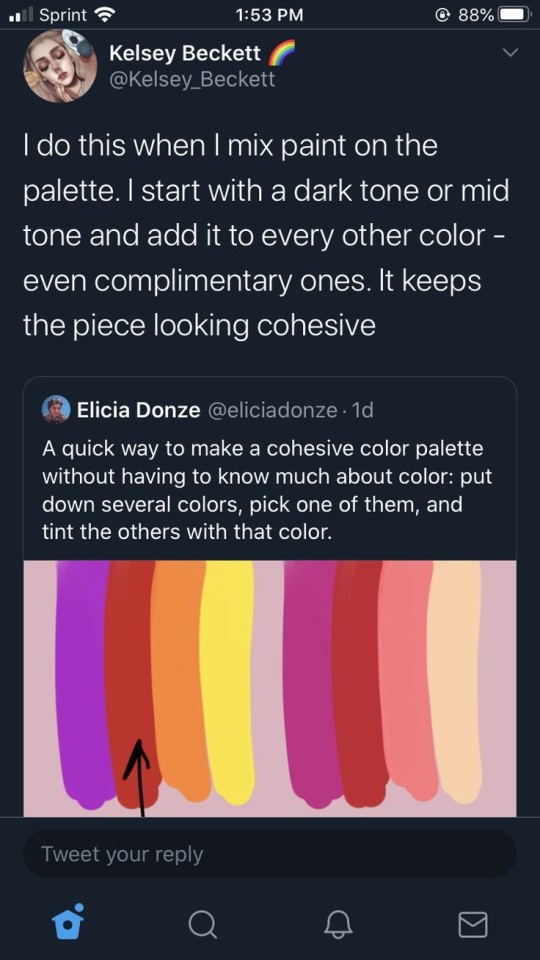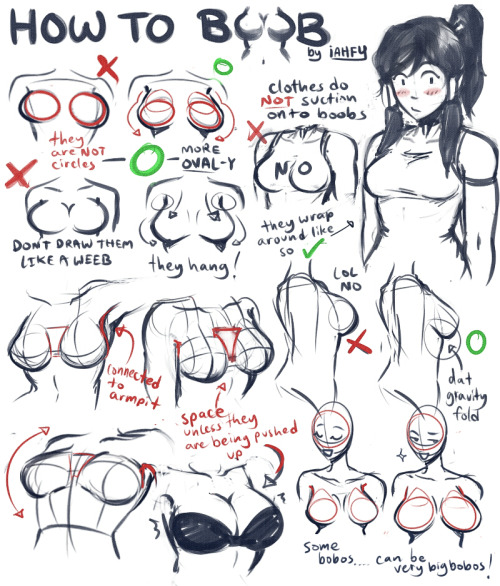Art Help
Art Help

I redid this list because broken links 💀
General Tips
Stretch your fingers and hands
Art is for fun
Never too late to start/improve
Using a tablet
Editing software: pictures & video
Moodboard resources
Comic pacing
Watercolor
Coloring
Color Theory (not children's hospital)
Resources: coloring things a different color
Gold
Dark Skin undertones
Dark Skin in pastel art
POC Blush tones
Eyes colors
Cohesive Color Palette
Lights and Colors
Human Anatomy
POSE REFERENCES
Wizard Battle poses
Romance poses
Shoulders
Tips for practicing anatomy
Proportional Limbs
Skeletons
Hair Directions
Afro, 4C hair
Cane use
Clothing
Long skirts
Traditional Chinese Hanfu (clothing reference)
CLOTHING REFERENCE
Sewing information
Animals
Horse -> Dragon
Snouts: dogs, cats, wolves, fox
Foot, paw, hoof
More
Drawing references sources
Art tutorial Masterlist
Another art tutorial Masterlist
Inspiration: father recreates son's art
Inspiration: Lights
ART BOOKS
Plants/flowers: North America, Hawaii, Patagonia
Art Cheats
More Posts from M3a7gr1nd3r and Others
Expanding a thought from a conversation this morning:
In general, I think "Is X out-of-character?" is not a terribly useful question for a writer. It shuts down possibility, and interesting directions you could take a character.
A better question, I believe, is "What would it take for Character to do X?" What extremity would she find herself in, where X starts to look like a good idea? What loyalties or fears leave him with X as his only option? THAT'S where a potentially interesting story lies.
In practice, I find that you can often justify much more from a character than you initially dreamed you could: some of my best stories come from "What might drive Character to do [thing he would never do]?" As long as you make it clear to the reader what the hell pushed your character to this point, you've got the seed of a compelling story on your hands.
some fucking resources for all ur writing fuckin needs
* body language masterlist
* a translator that doesn’t eat ass like google translate does
* a reverse dictionary for when ur brain freezes
* 550 words to say instead of fuckin said
* 638 character traits for when ur brain freezes again
* some more body language help
(hope this helps some ppl)
Skip Google for Research
As Google has worked to overtake the internet, its search algorithm has not just gotten worse. It has been designed to prioritize advertisers and popular pages often times excluding pages and content that better matches your search terms
As a writer in need of information for my stories, I find this unacceptable. As a proponent of availability of information so the populace can actually educate itself, it is unforgivable.
Below is a concise list of useful research sites compiled by Edward Clark over on Facebook. I was familiar with some, but not all of these.
⁂
Google is so powerful that it “hides” other search systems from us. We just don’t know the existence of most of them. Meanwhile, there are still a huge number of excellent searchers in the world who specialize in books, science, other smart information. Keep a list of sites you never heard of.
www.refseek.com - Academic Resource Search. More than a billion sources: encyclopedia, monographies, magazines.
www.worldcat.org - a search for the contents of 20 thousand worldwide libraries. Find out where lies the nearest rare book you need.
https://link.springer.com - access to more than 10 million scientific documents: books, articles, research protocols.
www.bioline.org.br is a library of scientific bioscience journals published in developing countries.
http://repec.org - volunteers from 102 countries have collected almost 4 million publications on economics and related science.
www.science.gov is an American state search engine on 2200+ scientific sites. More than 200 million articles are indexed.
www.pdfdrive.com is the largest website for free download of books in PDF format. Claiming over 225 million names.
www.base-search.net is one of the most powerful researches on academic studies texts. More than 100 million scientific documents, 70% of them are free
I spent last night looking at Neocities sites and here are my takeaways:
There's a real push to keeping the internet weird, open and less corporate-driven -- info on bypassing paywalls, protecting your data, archiving web media and basic coding/tech literacy.
(I found one tutorial on how to make a pop up that detects whether someone has an ad blocker and suggests they install one if they don't! Love that.)
There's also resources on finding the kind of internet that isn't the default experience anymore - alternate search engines I hadn't even heard of, human-made link lists and webrings. (Webrings! Turns out they never went away!)
If any of that sounds interesting to you, by the way - sadgrl.online has a lot of it and is possibly the best thing on the internet????
The "90's web" aesthetic is really fun and nostalgic, but I particularly loved seeing some people bring the better parts of the "modern internet" into it. What if we had weird, eye-searing personal sites BUT with plaintext alternatives for accessibility purposes? CW for flashing lights and unreality triggers?
(Again sadgrl comes in with a lot of resources for making your website accessible.)
Most of all, I'm honestly emotional about all the sites I found that were like, "hi! I'm 14 and this is my website where I talk about stuff I like haha."
It's so good that so many kids and teens who never experienced the "old internet" are still finding stuff like this and making their own weird stuff! Not just because weird websites are more fun, but because these skills are being passed down.
Anyway it's great and who knows maybe I'll make my own site sometime to keep horror media recommendations or something.
DEAR ARTISTS, PLEASE READ THIS POST I STUMBLED ACROSS

IF YOU ARE NOT DOING THIS ALREADY, YOU SHOULD TRY IT

I even tested it out myself, it works great
I don't think a single person on planet earth cares abt this (except me) but I've seen some minos prime enjoyers using thou/thee incorrectly. so if you have mental problems like me and you DO care here's a small guide
Thou is a subject and Thee is an object (like he vs him)
Thy and Thine are both possessives, the usage depends on whether or not the following word starts with a vowel (like a vs an); you'd say "thy hand" and "thine arm"
feel free to ignore this post

How to make characters that start a story off dead feel real.
Name them- this is the bare minimum
Happy memories- what did this person mean to those they had relationships with? These little details contextualize your living characters and who they are as people.
Identity- who was this person outside of these relationships?
Agency- give them a last action related, but more personal simply dying. For example, taking a bullet, giving one last piece of advise, leaving a scar on their killer's face, telling a joke, or even just figuring out a plot to kill them and doing something about.
In conclusion, characters who start a story off dead should mean something besides making a reader's feel sympathy for another character. Death is a big deal, and neglecting this reality can mess with a reader's suspension of disbelief, even for characters the reader will never truly meet. Having bits and pieces of a dead character feels more real because it mimics that experience of getting to know a person through their family and friends or reading a diary of a person long dead.
-
 thesawapprentice reblogged this · 2 days ago
thesawapprentice reblogged this · 2 days ago -
 thesawapprentice liked this · 2 days ago
thesawapprentice liked this · 2 days ago -
 kyenasketches reblogged this · 2 days ago
kyenasketches reblogged this · 2 days ago -
 lotus-draws reblogged this · 3 days ago
lotus-draws reblogged this · 3 days ago -
 marinekanazawa liked this · 3 days ago
marinekanazawa liked this · 3 days ago -
 jam4lamz liked this · 3 days ago
jam4lamz liked this · 3 days ago -
 toothlilli liked this · 3 days ago
toothlilli liked this · 3 days ago -
 mewmew-dream liked this · 3 days ago
mewmew-dream liked this · 3 days ago -
 mightyspam liked this · 3 days ago
mightyspam liked this · 3 days ago -
 cloverbind liked this · 3 days ago
cloverbind liked this · 3 days ago -
 artsy1reese liked this · 4 days ago
artsy1reese liked this · 4 days ago -
 frostedrosegardens liked this · 4 days ago
frostedrosegardens liked this · 4 days ago -
 celestialbitch-art liked this · 4 days ago
celestialbitch-art liked this · 4 days ago -
 marg0yle liked this · 4 days ago
marg0yle liked this · 4 days ago -
 harbormaster liked this · 4 days ago
harbormaster liked this · 4 days ago -
 iriso-page liked this · 4 days ago
iriso-page liked this · 4 days ago -
 misoir liked this · 4 days ago
misoir liked this · 4 days ago -
 damienns liked this · 4 days ago
damienns liked this · 4 days ago -
 letsdrawcuties liked this · 4 days ago
letsdrawcuties liked this · 4 days ago -
 zanuloveart reblogged this · 4 days ago
zanuloveart reblogged this · 4 days ago -
 anax323 reblogged this · 5 days ago
anax323 reblogged this · 5 days ago -
 anax323 liked this · 5 days ago
anax323 liked this · 5 days ago -
 madmadothestrawberryshark liked this · 5 days ago
madmadothestrawberryshark liked this · 5 days ago -
 calextis reblogged this · 6 days ago
calextis reblogged this · 6 days ago -
 calextis liked this · 6 days ago
calextis liked this · 6 days ago -
 stormy-days-27 reblogged this · 6 days ago
stormy-days-27 reblogged this · 6 days ago -
 thepandoraylambox liked this · 6 days ago
thepandoraylambox liked this · 6 days ago -
 riniventnyan liked this · 6 days ago
riniventnyan liked this · 6 days ago -
 sakurayumeno liked this · 6 days ago
sakurayumeno liked this · 6 days ago -
 axomothl liked this · 6 days ago
axomothl liked this · 6 days ago -
 tomatosquid liked this · 6 days ago
tomatosquid liked this · 6 days ago -
 smokypaul liked this · 6 days ago
smokypaul liked this · 6 days ago -
 art-guide-collection reblogged this · 6 days ago
art-guide-collection reblogged this · 6 days ago -
 artttttips reblogged this · 1 week ago
artttttips reblogged this · 1 week ago -
 realestweasel liked this · 1 week ago
realestweasel liked this · 1 week ago -
 bluecat66 liked this · 1 week ago
bluecat66 liked this · 1 week ago -
 cosmicdeer3 liked this · 1 week ago
cosmicdeer3 liked this · 1 week ago -
 cregla reblogged this · 1 week ago
cregla reblogged this · 1 week ago -
 cregla liked this · 1 week ago
cregla liked this · 1 week ago -
 starch0w liked this · 1 week ago
starch0w liked this · 1 week ago -
 tiroxina liked this · 1 week ago
tiroxina liked this · 1 week ago -
 allintellectualandsht reblogged this · 1 week ago
allintellectualandsht reblogged this · 1 week ago -
 chewonmyteeth reblogged this · 1 week ago
chewonmyteeth reblogged this · 1 week ago -
 chewonmyteeth liked this · 1 week ago
chewonmyteeth liked this · 1 week ago -
 zanuloveart liked this · 1 week ago
zanuloveart liked this · 1 week ago -
 elluqien710 reblogged this · 1 week ago
elluqien710 reblogged this · 1 week ago -
 kosmim liked this · 1 week ago
kosmim liked this · 1 week ago -
 alivingflopp liked this · 1 week ago
alivingflopp liked this · 1 week ago -
 omegajor liked this · 1 week ago
omegajor liked this · 1 week ago



